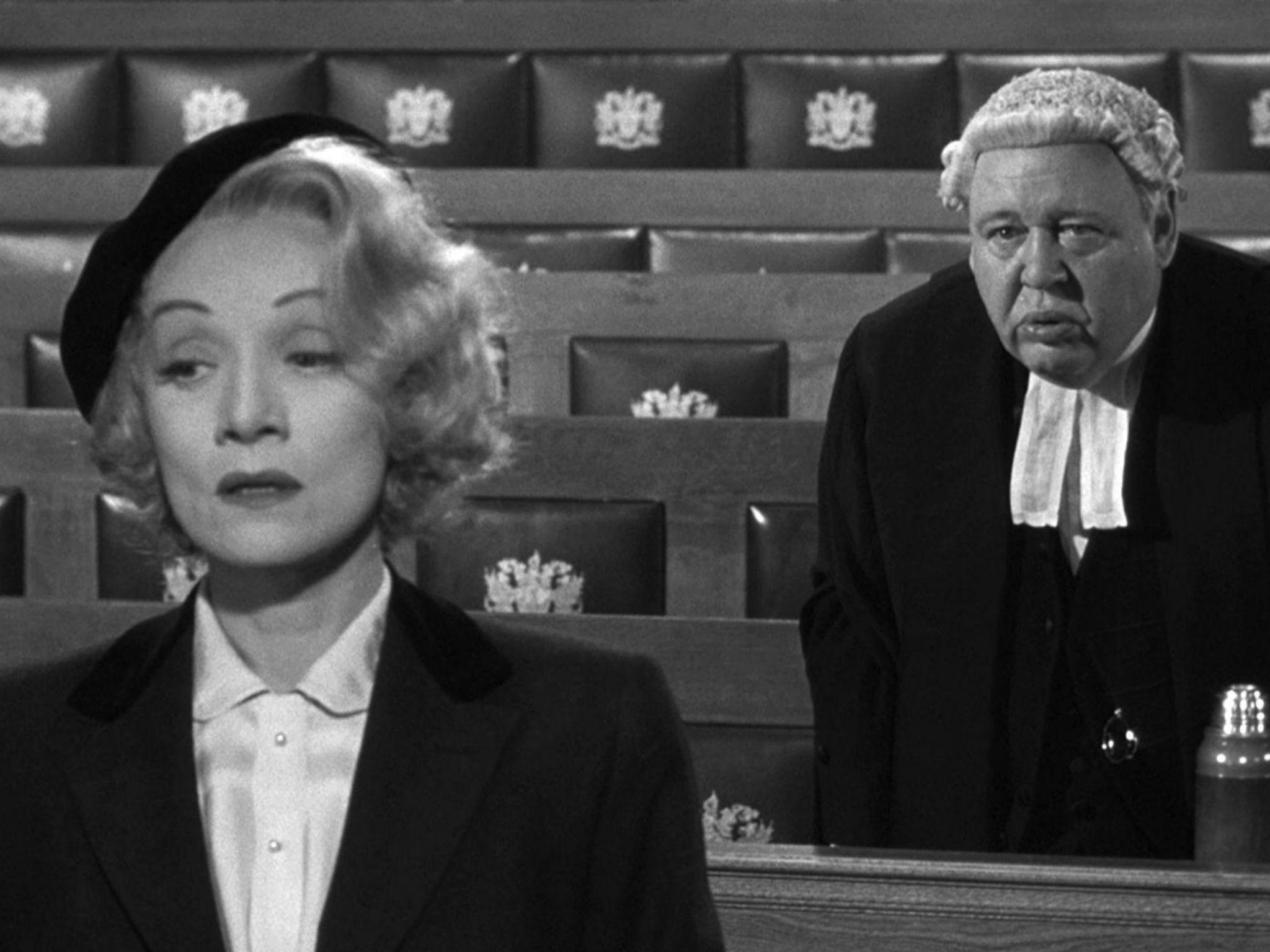Movies You Might Have Missed: Billy Wilder's Witness for the Prosecution
This dark courtroom drama that leaves the audience guessing until the very final frame was the only film based on one of her stories that Agatha Christie actually liked

Your support helps us to tell the story
From reproductive rights to climate change to Big Tech, The Independent is on the ground when the story is developing. Whether it's investigating the financials of Elon Musk's pro-Trump PAC or producing our latest documentary, 'The A Word', which shines a light on the American women fighting for reproductive rights, we know how important it is to parse out the facts from the messaging.
At such a critical moment in US history, we need reporters on the ground. Your donation allows us to keep sending journalists to speak to both sides of the story.
The Independent is trusted by Americans across the entire political spectrum. And unlike many other quality news outlets, we choose not to lock Americans out of our reporting and analysis with paywalls. We believe quality journalism should be available to everyone, paid for by those who can afford it.
Your support makes all the difference.Agatha Christie, the best-selling author in history, is undergoing something of a renaissance. Forty years after her death, adaptations of Christie’s work range from Kenneth Branagh’s recent all-star version of Murder on the Orient Express to last year’s Witness for the Prosecution miniseries shown on BBC1 over Christmas. The latter began life as a short story before the author transformed it into a hugely successful stage play. In 1957, Billy Wilder’s big-screen version was released, at the time the only film based on one of her stories that Christie actually liked.
Charles Laughton, fresh from the disappointing response to his sole directorial effort, The Night of the Hunter, stars as Sir Wilfrid Robarts, a masterful barrister recovering from a heart attack. His private nurse is adamant that rest and relaxation are key to his convalescence, but Robarts insists on taking on a new client, Leonard Vole (Tyrone Power in his last completed film role). Vole has been accused of murdering a rich, older widow and all the evidence seems to suggest he is the man responsible, but Robarts isn’t so sure. Enter Vole’s wife, Christine (Marlene Dietrich), a femme fatale with secrets of her own and the result is a courtroom drama that leaves the audience guessing until the very final frame.
Laughton, the finest actor of his generation according to Daniel Day-Lewis, is magnificent here. The actor had a reputation for being moody and difficult yet Wilder found him a joy to work with. In fact, Laughton even came in on his day off and read all of the off-camera speeches for the jury members on a day devoted to filming reaction shots; such was his interest in the art of filmmaking. The director, for his part, felt Laughton had the greatest range of any actor he’d ever worked with.
The combination of Christie and Wilder ensures the story is impeccably told and the dialogue is unsurpassable from start to finish. The filmmaker followed this effort with Some Like it Hot and The Apartment, two of the most beloved films in the history of the medium. While there are moments of comedy here, not least in the scenes involving Robarts and his nurse, this is a far darker film than those that came after it and has more in common with Wilder’s earlier masterpiece, Double Indemnity. It is, in fact, so dark that Alfred Hitchcock once remarked: “Many times, people have told me how much they enjoyed Witness for the Prosecution. They thought it was my film.” It was in fact the work of one of the 20th century’s other iconic filmmakers and the start of one of the great runs of form in cinema.
Join our commenting forum
Join thought-provoking conversations, follow other Independent readers and see their replies
Comments